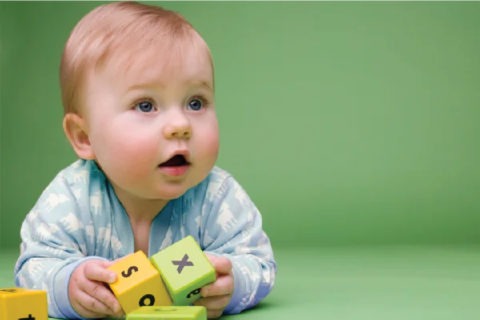
Handling the Empty Nest Syndrome
January 18, 2023
‘My 3 and half years old grandson spends 40-45 minutes with the books everyday’, says a proud grandmother from Bengaluru, India.
February 21, 2023Praising children is an important part of their development, as it helps to boost their self-esteem, build their confidence, and encourage positive behaviors. However, praise can be a bit of a delicate balance – too much can lead to overconfidence and entitlement, while too little can be demotivating and lead to a lack of self-worth.

As a parent, it can be difficult to know exactly how to praise your child in a way that is both meaningful and effective. Here are some of the best ways to praise children aged 0 to 4 years old:
- Be Specific: When you praise a child, be specific about what you are praising them for. For example, instead of simply saying “Good job,” try saying “Good job putting your toys away all by yourself!” This specific praise lets the child know exactly what behavior you are proud of, and it makes the praise feel more genuine.
- Use Positive Words: The words you use when you praise your child are important. Use positive, encouraging words like “great,” “fantastic,” and “amazing” to help boost their confidence. Avoid negative words like “good enough,” which can be demotivating.
- Show Physical Affection: Physical affection, like hugs and high-fives, can help reinforce praise and make it feel more tangible. These physical cues can help your child understand that you are proud of them and that they are loved.

-
- Emphasize Effort, Not Outcome: Children of this age are still developing their skills and abilities, so it’s important to praise their effort, not just the outcome. For example, if your child tries to put on their own shoes but doesn’t quite succeed, praise their effort rather than the outcome. This type of praise helps children understand that it’s okay to makemistakes and that the important thing is to try their best.
- Make it a Habit: Try to make praising your child a habit. Look for opportunities throughout the day to praise their efforts and accomplishments, no matter how small. This consistent praise will help build their self-esteem over time.
- Encourage Independent Play: Children aged 0 to 4 years old are still learning about the world and developing their independence. Encourage independent play by praising their efforts and creativity, even if the outcome isn’t perfect. This type of praise will help build their confidence and independence.
- Avoid Comparisons: It’s important to avoid comparing your child to others, as this can be demotivating and lead to feelings of inadequacy. Instead, focus on praising your child fortheir unique abilities and efforts.
- Offer Age-Appropriate Praise: Children in this age group have different needs and abilities depending on their age, so it’s important to offer praise that is appropriate for their developmental stage. For example, a 1-year-old may be praised for simply holding a toy, while a 3-year-old may be praised for playing with the toy in an imaginative way.
- Show Genuine Interest and Excitement: When praising your child, it’s important to show genuine interest and excitement in what they are doing. For example, if your child is showing you a picture they drew, take a moment to look at it carefully and express your appreciation for their creativity. This type of interest and excitement helps children feel valued and appreciated
- Use Positive Body Language: Children at this age are very perceptive, and they can often pick up on nonverbal cues, such as a smile or a nod of approval. So, when you’re praising your child, make sure to use positive body language such as a big smile, a pat on theback, or a hug.
- Offer Praise in the Moment: Children in this age group have short attention spans, so it’s important to offer praise in the moment when they are doing something positive. For example, if your child is sharing their toys, say “good sharing” right then and there. This type of immediate praise helps reinforce the behavior and encourages your child to continue doing it.
- Emphasize Effort, Not Outcome: Children of this age are still developing their skills and abilities, so it’s important to praise their effort, not just the outcome. For example, if your child tries to put on their own shoes but doesn’t quite succeed, praise their effort rather than the outcome. This type of praise helps children understand that it’s okay to makemistakes and that the important thing is to try their best.

- In conclusion, praising children is an important part of their development and can help boost their self-esteem, build their confidence, and encourage positive behaviors. By being specific, focusing on effort, using positive words, showing physical affection, making it a habit, encouraging independent play, and avoiding comparisons, you can help your child feel valued and appreciated.
When praising children who are 0 to 4 years old, it’s important to be specific, use positive body language, offer praise in the moment, show genuine interest and excitement, emphasize effort over outcome, and offer age-appropriate praise. By following these tips, you can help your child feel valued and appreciated, and encourage them to continue to engage in positive behaviors and activities
Have a look at the Learning Time A+ Program for children aged up to 4-5 years old. It has fantastic early learning materials for children, stories for moral values, fun activities, and apps to engage children. Read out the engaging bedtime stories or do bonding activities from this program as an instant incentive for your children. Have a look.




